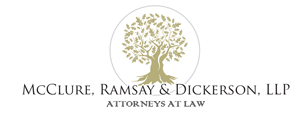You are ready to begin preparing your first estate plan. This is an important and proactive step toward securing your assets’ future if anything should happen to you.
Taking a thorough approach to your planning will benefit your estate and heirs. The more you can spell out clearly in advance, the less guesswork there will be about your wishes when you are no longer available to clarify them.
1. Financial property
Gather information on all the accounts you have. This may include banking, investments, retirement and others. Specify the name of the institutions and account numbers whenever possible.
2. Real property
Likewise, you need to identify all real estate you own. This may be only your home but could also include a summer home or investments as well.
3. Personal property
You may have a long list of physical personal property to consider, such as heirlooms, antiques, collectibles, vehicles and other things. As you write the list of your possessions, be thorough in describing them when needed.
For example, if you have three televisions and you want them each to go to different people, be sure to list differentiating features such as brand name, size and model number. If you have two wooden chairs and one is an antique you want to pass to your eldest child, describe its color, size and shape, and the designs or inlays in its wood.
4. Digital property
This category may seem less obvious than but may be equally important as the other categories in today’s digital age. If you have email, social media, websites or digital storage accounts (“cloud” storage), you may have a lot of digital property that you will need to assign. For example, you may want your executor to give digital family photos to a single person or to all your closest friends and family.
Additionally, does any of your digital property involve income, such as through royalties for your own copyrights (photos, books or other materials)? You may need to make arrangements for maintaining those assets and distributing the income among your chosen heirs for as long as the income is likely to continue.
